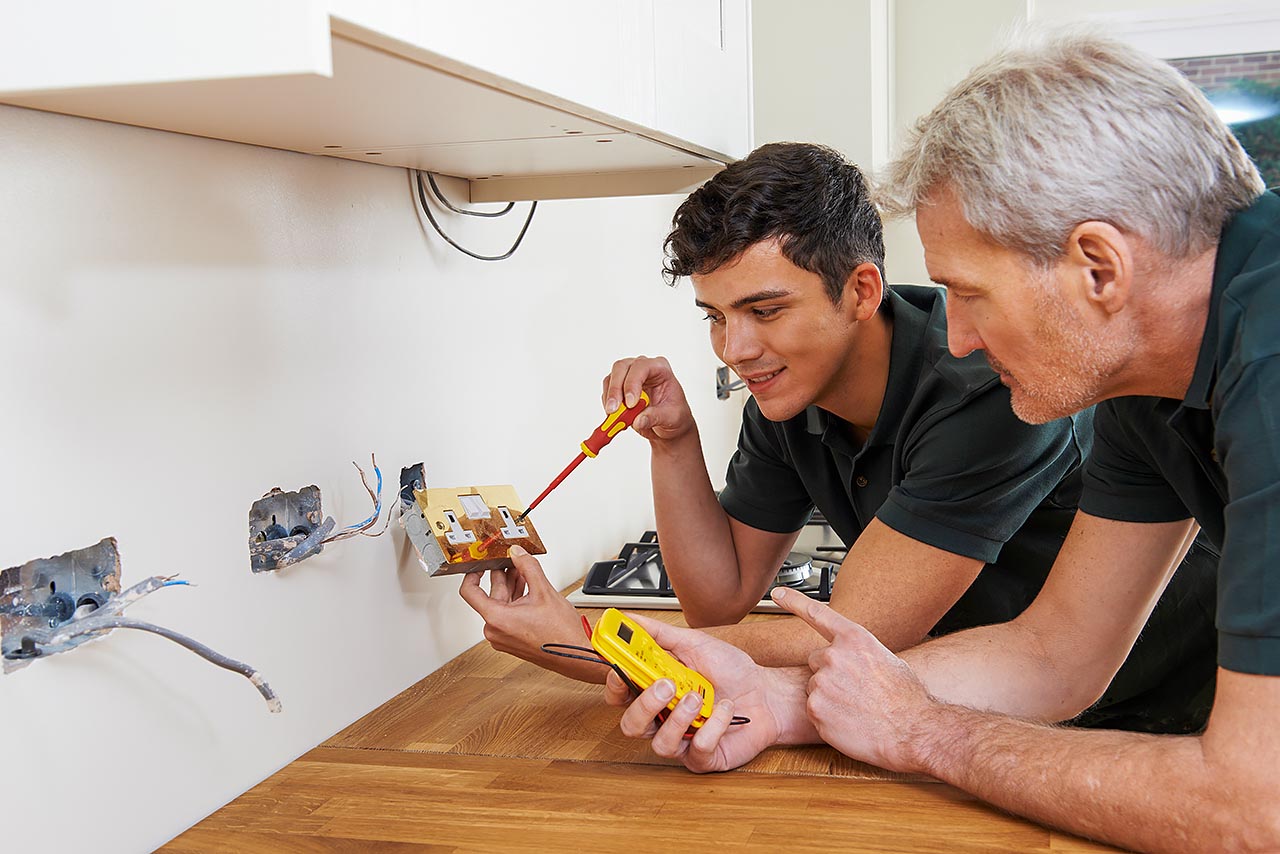The world comes alive and allows us to live day and night thanks to the power of electricity. Since Thomas Edison invented the electric lightbulb in 1879, our lives have been transformed and propelled forward through the electric currents that flow through the nation. Imagine the consequences of something as seemingly minor as a two or three-day blackout. Without the ability to refrigerate our food, communicate through technology or use transportation safely, a city is left at a huge and dangerous disadvantage. Think of the essential work professionals, like emergency responders, agriculturists, and teachers, accomplish each day. We consider these jobs fundamental to our communities. Yet, none of them would be able to perform their daily tasks with the effectiveness necessary to maintain our quality of life without electricians.
How can electricians have a positive impact on energy?
Electricians are responsible for maximizing the electrical systems we use daily. For example, they develop new technology to ensure lights are only entirely on when necessary and create solutions to ensure the building’s electricity is not going to appliances and devices when not in use. As Eduard Sandulyak, a licensed IBEW electrician, explained in an interview; “By using different programming and lighting devices, we can drastically reduce the amount of power used by facilities.” A considerable part of the job is making the electrical system more efficient, allowing it to function while using less energy, consequently conserving the use of the limited natural resources we need to survive.
Why should you become an electrician?
Becoming an electrician gives you the essential skills and knowledge every home, office, and building needs. An electrician’s work is a vital pillar in our modern way of life and can allow you to have a substantial positive impact on your community. There’s nothing better than being able to feel a sense of gratitude and achievement after accomplishing something in your job. “I feel extremely proud to be able to drive past a building I helped create and tell my daughter; I made that happen,” says Eduard.
Because their knowledge is so essential, electricians can work in the environment of their choice. There are always excellent career growth opportunities for those looking to climb up the ladder. A standard apprenticeship program will teach you everything you need to know to be an electrician. While some more specific jobs will require extra classes, the fundamentals are already there. You can move to foreman or project manager or something more niche. Start your own business, work as an in-house electrician for a corporation, work for a union, or do part-time residential work. No matter your goals, as long as you enjoy problem-solving and working with your hands, there’s likely a path you will enjoy.
How to become an electrician
The requirements to become a licensed electrician will vary depending on the state where you plan to conduct business. The standard prerequisites include a high school diploma or GED, an apprenticeship program, and a passed licensing exam. However, you don’t necessarily need to pass an apprenticeship program to become a licensed electrician. As long as you have the correct amount of working hours under an electrical contractor . But the apprenticeship is so useful in regards to the education that they provide. And not every state has a certification that electricians need to pass in order to be certified.When looking for an apprenticeship, there are a couple actions to choose. Like most skilled trades, unions offer training programs and serve as a middleman when negotiating job pay and benefits for their members. This can be an excellent path for those who want extra support when approaching job opportunities. However, independent contractors and non-union organizations can also offer opportunities for success. When beginning your journey, research your local organizations to find the apprenticeship program that works best for you. Many organizations additionally offer scholarship programs for those who complete the apprenticeship program to help pay for books and testing material.
The Energy Transmission, Distribution, and Storage Sector employed more than 1.3 million people in 2021 alone, according to the 2022 U.S. Energy And Employment Report Fact Sheet. And with projected job growth of 7% in the next ten years, according to the U.S. Bureau of Labor Statistics, becoming an electrician means ample employment and career advancement for those willing to get their license.
If you are interested in learning about energy resources and the amazing career opportunities available in the energy sector, visit Smart Energy Education to learn more!
For more information regarding electrical work, the benefits of joining a union and more visit the sites below! And don’t forget to follow the Smart Energy Education Facebook page for updates on all our projects, scholarship opportunities, blog posts and more!
Eduard Sandulyak
TikTok : @electriceduard
IBEW


